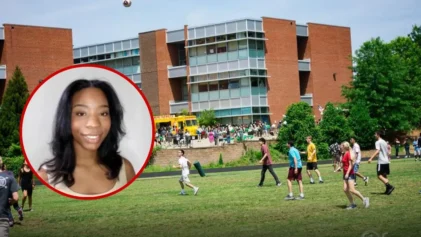Cities all over India have been filled with protestors calling for better protection of women ever since a gang-rape victim died in a Singapore hospital.
Over the weekend thousands of police were needed to block off streets leading to Rajpath and Raisina Hill as the number of protestors multiplied as their grief and anger continued to grow.
A 23-year-old college student had been brutally gang-raped on an unauthorized bus on December 16 resulting in the arrest of six men.
Ever since the tragic event, citizens took to social media networks to organize protests as authorities quickly stepped in to try to intervene.
“I request everyone to maintain peace and calm and call upon the authorities to take all necessary steps to bring the perpetrators of this ghastly crime to justice,” said President Pranab Mukherjee in a public statement. “At the same time, let us resolve that this death will not be in vain. We will do everything possible to ensure that such an incident never happens again.”
The public statement was exactly the type of reaction that protestors were hoping for after years of waiting for the government to better protect their women.
Of course, a simple statement and the arrest of the six men still won’t be enough to make the woman of India feel safe again.
Sexual violence has become increasingly more common in India, especially in Delhi which has earned the unfortunate title of being the “rape capital” of India.
Although people have been fighting for more laws to protect the woman of India in the past, the sheer cruelty of this particular attack has riled the country like no other before it.
The young physiotherapy student from Uttar Pradesh has critical internal injuries and infection to her lungs and abdomen following the vicious attack.
Her intestines suffered several severe injuries and had to be removed after the attackers used an iron rod during the rape.
After three abdominal surgeries there were still many more critical injuries that threatened the student’s life including brain injuries and cardiac arrest.
Television stations have been showing coverage of many protests which revealed large rallies of citizens chanting and shouting slogans against Delhi Chief Minister Sheila Dikshit letting the Minister know they are ready for change and they aren’t willing to wait any longer.
After a violent 45 minute attack, the unnamed student “died peacefully” according to the chief executive of Singapore’s Mount Elizabeth Hospital Kevin Loh.
Before she passed away, however, she remained conscious long enough to give a statement o the magistrate before her condition soon after began to deteriorate due to the various infections.
Ever since she passed she has been revered as a powerful symbol for the people who have now called for a statue to be erected in her honor.
Although the gang-rape victim’s name has not been released, the people of India have given her several fitting names including “Amanat,” which means keepsake in Hindi, and “Damini,” who is a Bollywood movie character who fought for justice for a rape victim.
In the people’s eyes, the woman is fighting for justice for all rape victims and hopefully her tragic death will help encourage the enforcement of strict laws against rapists in India.
The people are urging the currently apathetic and corrupt police force to be reformed so that women can feel safe once again.
In addition to having poor police forces, the courts are overwhelmed and it takes years for anyone seeking justice to actually get it.
The legal process in India moves along very slowly due to the terrible judge to citizen ration that the country has.
While the U.S has over 100 judges for each million people in the country, India only has 15, making it increasingly difficult to have cases heard in a timely manner.
Since July 31 there were over 63,000 pending cases in their courts and 67 percent of them had been on the roll for well over a year.
Protestors are hoping that their “Amanat” will not die in vain as they fight for a better justice system in their country.


